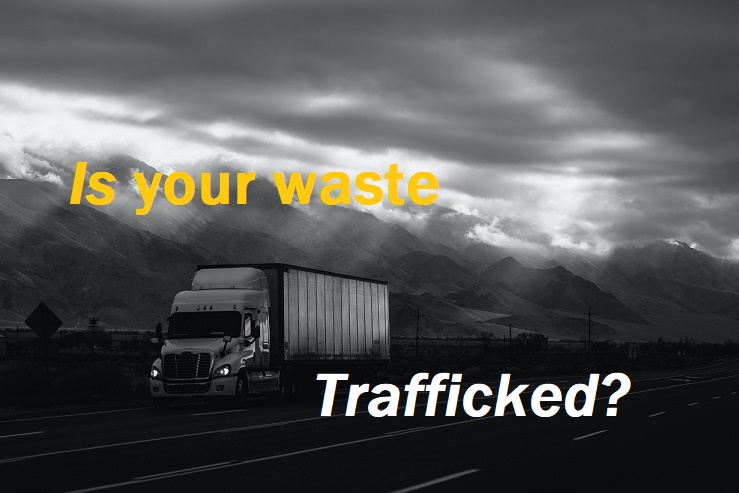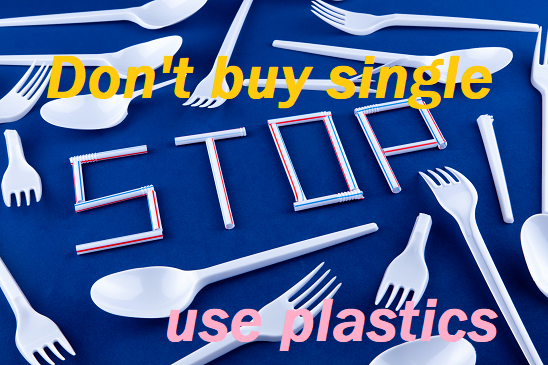It used to be just people that traffickers targeted. Now Traffickers see Plastic waste as a valuable material. Interpol is on the case and it’s disturbing.
A recent INTERPOL report has found an alarming increase in illegal plastic waste pollution trade across the world since 2018.
The report provides a disturbing insight into emerging trafficking routes & crime threats in the plastic waste market and is based on open sources and criminal intelligence from 40 countries. The problem is on a truly global scale.
The report has a long title, INTERPOL’s strategical analysis on emerging criminal trends in the global plastic waste market since January 2018, but its findings can be summed up quickly:
We have a waste trafficking problem globally that will grow more severe unless we all act now.
Examples of trafficking
SE Asian countries, the recipients of a lot of the trafficked plastic waste are fighting back. Here’s some examples:
- Malaysia began returning almost 4,000 tonnes of plastic waste to 13 countries last May. This highlights a surge of plastic waste sent to Malaysia, mostly from Europe and North America, since 2018.
- China is doing likewise.

Why is this happening now?
China’s waste import ban, which kicked off at the end of 2017, prevented foreign inflows of waste products. Starting in early 2018, the government, under Operation National Sword, banned the import of several types of waste, including plastics.
The ban has greatly affected recycling industries worldwide, as China had been the world’s largest importer of plastic waste and processed hard-to-recycle plastics for other countries, especially in the West.
Now other destinations are under fire from trafficking.
Main points
The report claims that there has been a big increase over the past two years in illegal plastic waste shipments, primarily rerouted to South-East Asia via multiple transit countries to hide the origin of the waste.
It reports a rise in illegal waste fires and landfills in Europe and Asia, a significant rise in the use of counterfeit documents and fraudulent waste registrations.
It has case studies from each of the contributing countries illustrating the extent and complexity of the plastic waste problem.
The report offers a comprehensive global picture of emerging trafficking routes and crime threats in the plastic waste market.
The report points to the link between crime networks and legitimate pollution management businesses which act as a cover for illegal operations. Criminals often resort to financial crime and forged paperwork to carry out their global operations.
It offers us recommended tailored enforcement responses, but these need to be reinforced with behavoural changes by us all.
Actions taken to combat the waste
There is some good news on counter measures. Let’s start with the EU, which is often the first to act and drag governments along with them.
Just last December the EU adopted the EU Green Deal – a new circular economic growth strategy that seeks to support the transition from a linear economic model “take-make-forsake” to a circular one. This will design waste out of the EU economy. It’s committed to building efficient markets for secondary resources, tackle illegal shipments, and reduce exports of waste. Significantly for importers, imported goods will have to comply with the same circular requirements as those made in the EU. When implemented and policed at national levels, the EU Green Deal will cut the illegal markets and international shipping of waste. ( see EU Regulation 1013/2006 / EC) The EU’s Decision 2019/1004 / EU laying down rules for the calculation, verification and reporting of data on waste (Directive 2008/98 / EC) will help to trace the flows. It will ensure the traceability of the plastic waste, right through to recycling.
But real progress in eliminating plastic waste requires the elimination of single use plastics at source and their replacement by biodegradable packaging or alternative compostable or biodegradable materials.
True accountability needs the extended producer responsibility to be really accounted and paid for. This needs fiscal measures like charges, levies and penalties with incentives for good practice.

We must keep pressure on our legislators to bring forward the measures proposed by the EU’s Circular Economy and Single Use Plastic directives. And most urgently, we must change our purchasing decisions to avoid plastics of all types, unless there are really no alternatives.
And if we are presented with no alternatives, we must seek them out. Only by stopping the flow of plastic can we stop the trafficking and the consequent pollution.
